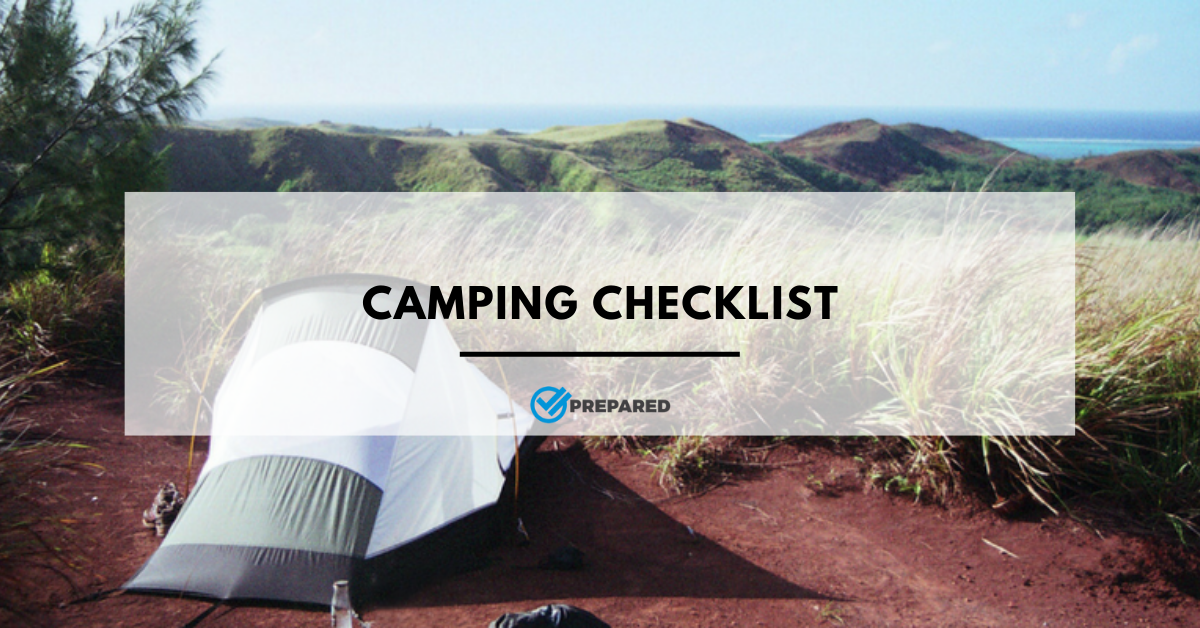When you are heading out to spend a peaceful weekend in nature, it can be easy to forget the things you need. A simple camping trip can turn into a survival scenario if you are not prepared.
Specifically, backcountry camping can be very dangerous if you do not take the proper measures. It is therefore recommended to draw up a camping checklist to make sure you include the basics you will need during your trip. Here is a list of items you should remember to take on every camping trip.
Shelter
The first item on the camping checklist is a shelter. Whether you flaunt your style in a camper or you sleep under the stars, you should always have some sort of shelter with you. This is true even if you do not plan to use it. This could be a tent, a hammock with cover, a tarp, or a camper. Rain can be unpredictable, and there is no need to risk hypothermia.
Also See: Priorities when building a survival shelter
Water
Not all campsites will have water. Even the ones that do might have you at a site very far from the water source. I like to get my water from a stream and purify it, but it is still always important to have some water with you just in case. Also remember to take a water bottle or canteen.
Also See: Survival water purification methods
Food
You should never assume that you will be able to find food while camping. Often people combine hunting or fishing with camping, but neither is a sure bet. Always bring enough food to get yourself through your trip. Consider taking some freeze-dried meals. You can always store them for a later camping trip use if you don’t use them during your first trip.
Also See: Edible wild plants for survival
Fire
Starting fires is not as easy as it seems. I suggest bringing several methods of starting a fire with you on every camping trip. A camp stove is a good idea if possible. In addition, lighters, ferro rods, and waterproof matches should make for a good backup plan. You also might want to bring your own tinder, fire assistance products, or charcoal. Some campgrounds do not allow you to collect firewood, so you may want to bring your own.
Also See: How to start a survival fire
First Aid
It is hard to predict what injuries or illnesses might happen on a camping trip. You might be dozens of miles from the nearest doctor, so having a complete first aid kit is vital. Bring items to treat cuts, stomach issues, fever, allergic reactions, burns, and blisters.
Also See: Top 5 survival skills to learn
Navigation
If you are like me, I rarely camp without doing some hiking. It is not a camping trip if you just sit by the fire the whole time. Because of this, you should have several ways to navigate. Both a trail map and a road or topographical map should be on your camping checklist. At least one compass should be with you, and never forget a GPS if you have it.
Also See: Land navigation techniques for survival
Tools
When camping, you can end up with several small projects that require tools. Whether you are sharpening a stick for marshmallows or fixing a tent pole, tools are vital. I suggest bringing a multi-tool, a full tang knife, a hammer, a folding saw, a hatchet, and some duct tape.
Also See: Survival items you need to have in your backpack
Bedding
Even in the summer, you can end up with some nasty nighttime temperatures around dawn. You do not have to use it, but you should either bring a sleeping bag or blankets for each person. You should also have a sleeping pad or mat for each person to keep them up off the ground.
If you include these items on your camping checklist, you should at least have the basics sorted for your next trip. Upgrade your camping meals by considering The Campout Cookbook and Feast by Firelight for simple recipes for camping, cabins, and the great outdoors.

Chris was born and raised in South Africa and has worked in the field of risk management, organisational resilience, and business continuity for more than a decade. During his career he has seen how private and public sector organisations benefit from effective risk management and business continuity planning. Realising that families and communities can also benefit from the same tools, methodologies, and principles, he started Prepare with Foresight.
Prepare with Foresight was launched to assist individuals and families to have the peace of mind that they will be able to recover from and successfully adapt to the consequences of adverse events.

